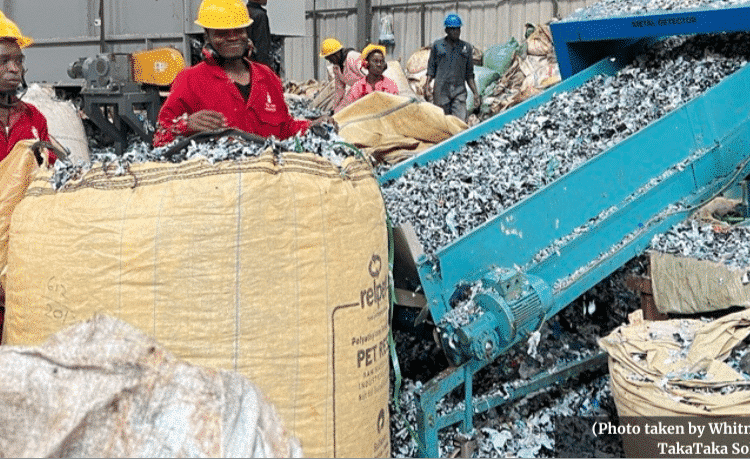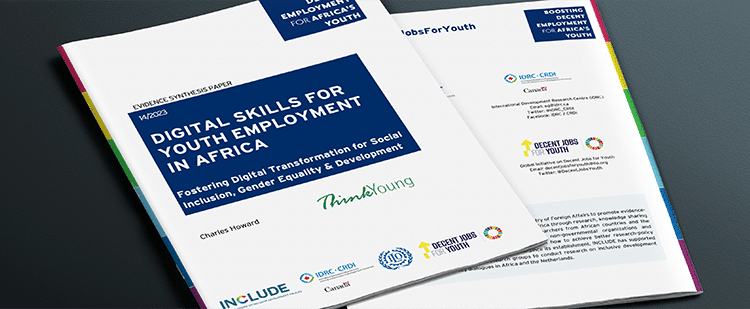
African structural change follows its own path. In Tanzania, the drop in employment in agriculture has been accompanied by an increase in the number of small and medium-sized enterprises. This was discussed at the annual conference of the Poverty Reduction, Equity and Growth Network (PEGNet) on ‘Transformation of emerging and developing economies: challenges and opportunities for sustainable and inclusive growth’ in Berlin on 8 and 9 October.
African structural change follows its own path
The recent spurt of economic growth in Africa has not been well understood, remarked Margaret McMillan from the International Food Policy Research Institute (IFPRI) and Tufts University. The share of people employed in the agricultural sector is declining and the share of people employed in service sectors is increasing. Whereas, on the surface, developments in the agricultural sector in Africa exhibit the same trends as those in Asia, Asian economic growth has been mostly triggered by an increase in the share of workers in labour-intensive manufacturing, while the changes in Africa are mostly driven by what McMillan refers to as the ‘in between sector’. This is an intermediary sector that exists in between the modern industrial and the traditional sectors and is characterized by differently sized units of production that engage in manufacturing and service provision.
Africa seems to be following its own course, as the increase in the service sector does not solely explain where all the people formerly employed in the agricultural sector have been absorbed. In Tanzania, the decrease in people employed in the agricultural sector has been accompanied by a rise in the ‘in between sector’, which is dominated by small and medium-sized enterprises. The majority of these enterprises have higher productivity rates than the agricultural sector, which leads to a higher level of overall output. Many of these businesses also have a high potential for growth, which can be easily tapped by the public and private sectors. However, the majority of these businesses have low loan up take rates. This is rather worrying and could indicate that many business owners do not have access to formal financial institutions. One possible intervention would be to identify the businesses with the most promising prospects and finance their expansion. Furthermore, the involvement of women in these businesses needs to be encouraged, as they are currently marginalized in this sector. Policy measures that aim at improving female access to finance, as well as increasing overall levels of education and financial literacy, should be encouraged to include women.
Nevertheless, this does not mean that the agricultural sector should be neglected. Although agricultural productivity in many African countries is still very low, it continues to offer the highest potential for rural transformation and development. Thus, it is imperative that policy-makers in these countries pay attention to the role that agriculture can play in steering structural transformation.
Is inequality necessary for economic transformation?
When talking about structural transformation it is important to consider who benefits from this process. In the case of Tanzania, growth has partly been driven by small and medium-sized business owners. This type of growth could offset inequality as it offers opportunities to the poor. However, it remains uncertain whether or not the poorest and most marginalized groups in society can make the most of these opportunities, as they lack start-up capital and access to financial institutions. In contrast, many emerging economies, such as China, have experienced an increase in growth accompanied by rising inequality. This has raised several questions as to whether or not it should be assumed that rising inequality is a given in the initial stages of development and how desirable growth is if it only benefits a certain segment of society.
The PEGNet roundtable discussion on ‘Economic transformation and rising inequality’ aimed to provide answers to these questions. According to Manuel Hinds, former Minister of Finance in El Salvador, and Stephan Klasen from the University of Goettingen, inequality should not be viewed as solely negative, because a certain degree of inequality may incentivize people to work harder to improve their living situation. Nevertheless, inequality may cause social and political instability if income disparities are inherited or increase with successive generations. Thus, they argued, income inequality is only tolerable as long as people have equal opportunities to become better off, which requires a certain level of intergenerational social mobility.
The most crucial component for this is equal access to education for all segments of society. In the context of the Millennium Development Goals (MDGs), significant progress in this area has been made, but Georg Schaefer from GIZ expressed concern that the emphasis on access to education in the MDGs compromised the quality of education and that quality education is still mostly only accessible to families with more financial resources. The recently adopted Sustainable Development Goals (SDGs), particularly SDG number 4, now take quality of education into consideration and stress the need to have equitable quality education and lifelong learning opportunities for all by 2030.
However, income inequality is only one part of the picture. Augustin Fosu from the University of Ghana pointed out that countries are more prone to entering vicious cycles of inequality if the wealthy exploit their economic power to gain political influence and secure their advantageous position. Thus, tackling corruption and creating redistributive tax systems are necessary to combat social inequality. Moreover, it is important to improve and extend social security systems to reduce the short-term risk of falling back into poverty. This could be achieved by prioritizing and earmarking funds to finance social security programmes.
Developing countries, particularly in Latin America, have made great strides in this area and can serve as role models for other emerging economies. There are many useful lessons to be learnt by African countries from the successful Mexican conditional cash transfer programme ‘Oportunidades’ and the extensive Brazilian pension system that specifically targets elderly impoverished people.
Furthermore, as Hinds stressed, engagement and pressure from civil society, think tanks and the private sector are critical to ensure that governments address the issue of inequality. These stakeholders have a key role to play in the dissemination of information as well as the monitoring of governments’ efforts to guarantee that policies aimed at reducing inequality are effective. Furthermore, countries need to adopt a multidimensional approach that involves a series of consultative rounds with all key stakeholders in order to come up with sustainable and representative policy solutions that address this issue. This encompassing approach is also reflected in the SDGs, which stress the need to address issues of development in a holistic and sustainable manner.




